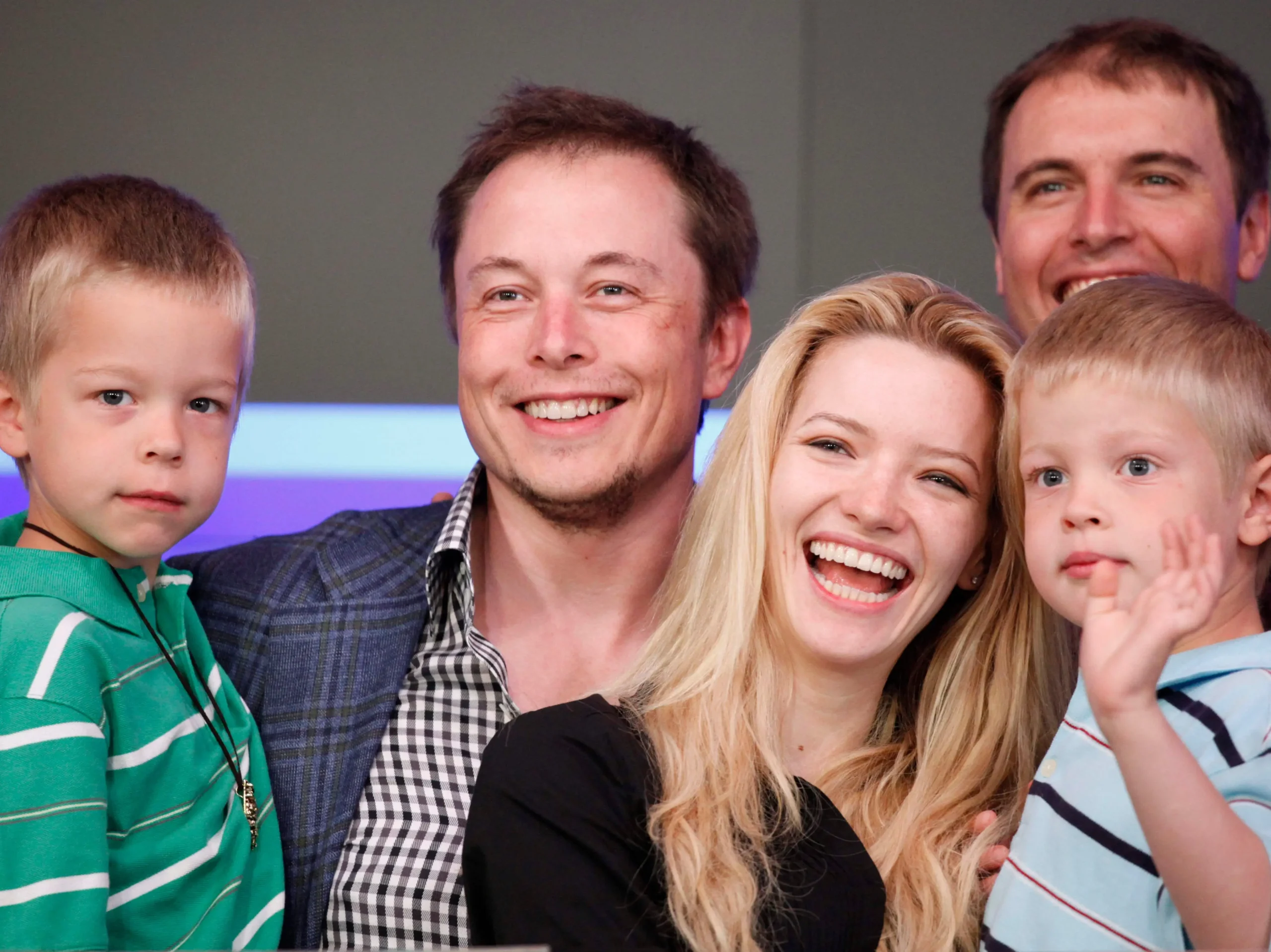
Elon Musk’s Kids: Inside His Unique Family Life
Introduction: Elon Musk Beyond the Boardroom]
When most people hear the name Elon Musk, they think of rockets, electric cars, brain–computer interfaces, and an endless Twitter feed. He’s the CEO who seems to have his hands in almost every futuristic industry imaginable. But there’s another, lesser-explored side to him: his role as a father. Yes, amid building multi-billion-dollar companies and shaping conversations about humanity’s future, Elon Musk is also a dad — and not just to one or two children, but to a growing brood with a variety of backgrounds and unique names.
Musk’s family life has fascinated the public for years. Part of the curiosity comes from the unusual names of his children — names that sometimes sound like they belong to science fiction characters rather than the kindergarten roster. But beyond the names, there’s a complex family dynamic shaped by multiple relationships, tragedy, and Musk’s unconventional approach to parenting.
In this article, we’ll dive deep into everything you need to know about Elon Musk’s kids: who they are, where they come from, how Musk approaches fatherhood, and what life looks like when your dad is one of the most high-profile — and often controversial — people on Earth. Whether you admire him, question him, or simply find him endlessly intriguing, understanding Musk’s family life adds another layer to the picture of who he really is.
The Early Years: Fatherhood Begins
Elon Musk’s journey into fatherhood began in the early 2000s during his first marriage to Canadian author Justine Musk (née Wilson). The two met while attending Queen’s University in Ontario, Canada, and married in 2000. Their first son, Nevada Alexander Musk, was born in 2002. Tragically, Nevada passed away from sudden infant death syndrome (SIDS) at just 10 weeks old, an event that Musk has rarely discussed publicly but which undoubtedly left a profound mark on him and Justine.
Not long after this heartbreaking loss, the couple decided to expand their family through in vitro fertilization (IVF). In 2004, they welcomed twins Griffin and Xavier Musk. Then, in 2006, triplets Kai, Saxon, and Damian were born, also via IVF. That meant that by 2006, Musk had five living children — all boys — under the age of three. For most parents, that number of toddlers would be unimaginable. For Musk, it was the beginning of a complex balancing act between his rapidly growing companies and his growing family.
During this period, Musk was still building SpaceX from the ground up and serving as chairman of Tesla Motors. It’s often been asked how much time he could realistically spend with his kids given his famously grueling work schedule, but Musk has said in interviews that he tries to integrate them into his life and work, sometimes bringing them along on business trips and to the office.
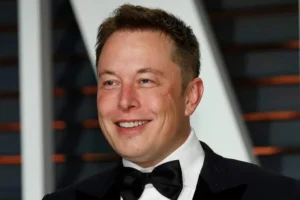
Twins and Triplets: The Musk Brothers’ Early Lives
Griffin and Xavier Musk were born in April 2004. As the first children to survive infancy for Elon and Justine, they experienced a very different upbringing than most kids. Their childhood coincided with Musk’s rise from a moderately wealthy tech entrepreneur to a billionaire with global recognition. The Musk twins were often shielded from excessive media attention, though small glimpses of their lives have occasionally appeared on social media and in rare interviews.
Two years after the twins, the Musk family doubled in size with the arrival of triplets Kai, Saxon, and Damian. Born in January 2006, these three younger brothers added to the already energetic household. All five boys reportedly attended the same school — a private institution Musk founded called Ad Astra, later renamed Astra Nova. This school was designed with a highly personalized learning environment, focusing on problem-solving and practical applications rather than traditional grading systems. The fact that Musk went as far as to create an entire school for his children (and a few others) speaks volumes about his unconventional approach to education.
While Musk’s boys have largely grown up out of the public spotlight, it’s known that they have traveled with him to events, rocket launches, and even overseas. Musk has expressed that he wants his children to understand the scope of his work, both so they appreciate the importance of human progress and so they feel connected to what occupies so much of his time.
A New Chapter: Life With Grimes
By the late 2010s, Musk’s personal life took another turn when he began a relationship with Canadian musician Claire Boucher, better known as Grimes. The two made their public debut as a couple at the 2018 Met Gala. In May 2020, Musk and Grimes welcomed their first child together, a son whose name immediately grabbed headlines: X Æ A-12 Musk.
The name, a blend of symbols, letters, and numbers, was explained by the couple in interviews and social media posts: “X” stands for “the unknown variable,” “Æ” is a character used in some languages and also represents “Artificial Intelligence” to them, and “A-12” refers to the Archangel 12, a precursor to the SR-71 Blackbird aircraft, which they described as their “favorite plane.” However, California law required the use of the English alphabet, so the name was slightly modified to X AE A-Xii.
Nicknamed simply “X” by his parents, the boy quickly became a fixture in Musk’s life, often appearing in candid moments shared online. Grimes has spoken about their shared approach to parenting, which blends creativity with structure, and Musk has said that X sometimes joins him at work, much like his older children did.
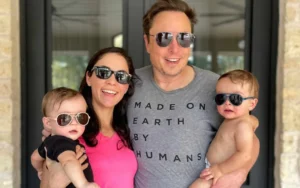
Expanding the Family Again
In December 2021, it was revealed that Musk and Grimes had secretly welcomed a second child together via surrogate: a daughter named Exa Dark Sideræl Musk. Her nickname? “Y.” Grimes explained that “Exa” refers to the computing term exaFLOPS, “Dark” represents “the unknown,” and “Sideræl” (pronounced “sigh-deer-ee-el”) is a more “elven” spelling of sidereal, meaning “the true time of the universe.”
Interestingly, by the time Y’s birth was made public, Musk and Grimes were no longer in a conventional relationship, though they described themselves as being on “great terms” and co-parenting both children. Musk’s ability to maintain cordial relationships with his children’s mothers has been an important factor in keeping a sense of stability for the kids despite the complexity of his personal life.
Adding another twist, it also came to light in 2021 that Musk had welcomed twins with Shivon Zilis, an executive at his company Neuralink. Born just weeks before Y, the twins’ names were not widely publicized, though court documents revealed Musk had sought to give them his surname. This brought Musk’s total number of living children to at least 10.
Elon Musk’s Parenting Philosophy
Musk’s parenting style is as unconventional as his career. He has stated that he does not believe in forcing traditional college education unless the child chooses it, preferring to expose his children to real-world problem-solving and hands-on experiences. His creation of Ad Astra/Astra Nova reflects this philosophy — it’s a place where children work collaboratively on projects, tackle ethical dilemmas, and are encouraged to think outside the box.
He has also spoken about the importance of integrating his children into his life rather than compartmentalizing work and family completely. This means his kids might see rocket prototypes, Tesla test vehicles, or AI labs long before the public does. In Musk’s view, this immersion helps his children grasp not only what he does but why he does it.
However, Musk is also famously busy, working upwards of 80–100 hours a week at times. Critics have questioned how present he can realistically be, but Musk insists that when he is with his children, he focuses on them fully. His approach seems less about quantity of time and more about making the moments they have together unique and meaningful.
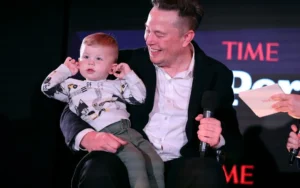
Public Perception and Controversies
Elon Musk’s family life has not been without controversy. His decision to give his children unusual names has drawn everything from admiration for creativity to accusations of seeking attention. Similarly, his large number of children with multiple partners has fueled public debate about modern family structures, the responsibilities of high-profile parents, and even the ethics of reproduction in an age of climate anxiety.
One particularly public moment came when his daughter Xavier, one of the twins born in 2004, filed to legally change her name and gender in 2022, stating she no longer wished to be associated with her father. The filing — which included the desire to take her mother’s surname — sparked widespread discussion about Musk’s personal relationships and whether his public persona affects his private connections.
Despite these moments, Musk maintains a loyal fan base that views his personal life as secondary to his professional achievements. For others, the way he navigates fatherhood offers insight into his values, priorities, and the human side of a man often portrayed as larger than life.
Life as a Musk Kid
Growing up as Elon Musk’s child means living in a world unlike almost anyone else’s. From early exposure to cutting-edge technology to international travel and media attention, the Musk kids’ lives are anything but ordinary. Yet, Musk has expressed that he tries to keep them grounded, ensuring they understand that wealth and fame are tools — not goals in themselves.
His older children have now reached young adulthood, with some attending universities and others maintaining private lives away from the spotlight. The younger ones, especially X and Y, are still in the early stages of their childhood, with much of their future path yet to unfold. Given Musk’s influence and resources, they will likely have opportunities far beyond what most people can imagine, but also unique pressures that come with their last name.
It’s hard to predict exactly how Musk’s children will navigate adulthood, but their upbringing — a mix of privilege, high expectations, and unconventional education — will undoubtedly shape them into people who see the world differently from the norm.
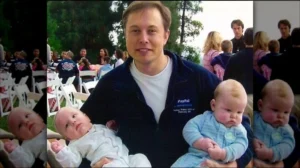
Conclusion: Fatherhood in the Fast Lane
Elon Musk’s role as a father is layered, unconventional, and, like much of his life, subject to public scrutiny. His children range from toddlers to young adults, and they are the product of different relationships, each with its own story. Musk’s approach to parenting — blending immersion in his work with a personalized educational philosophy — reflects his belief in pushing boundaries, whether in business, technology, or family life.
While some may question the sustainability of his lifestyle as a parent, others see it as a testament to the idea that there’s no single “right” way to raise children. For Musk, the goal seems to be preparing his kids not just to navigate the world as it is, but to shape the world as it could be. And in that sense, his family life mirrors the same daring ambition that defines his career.


